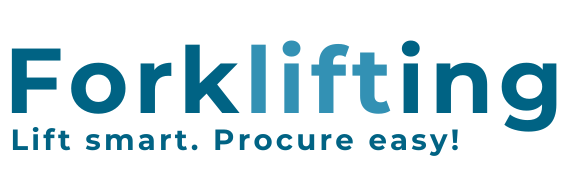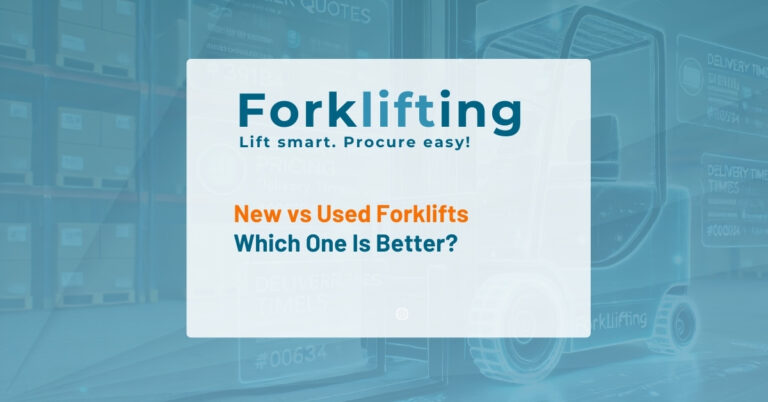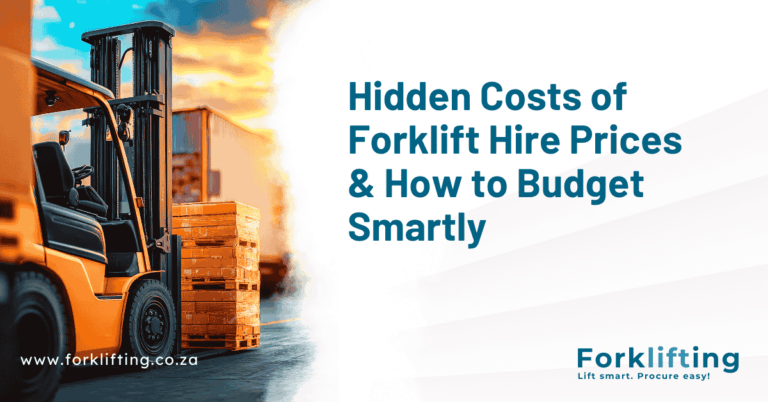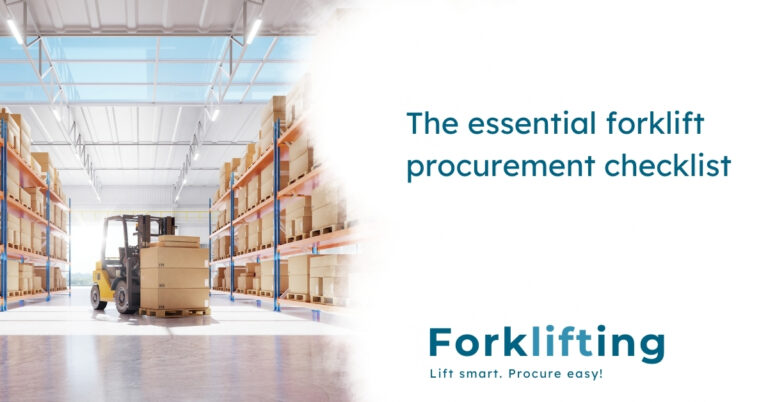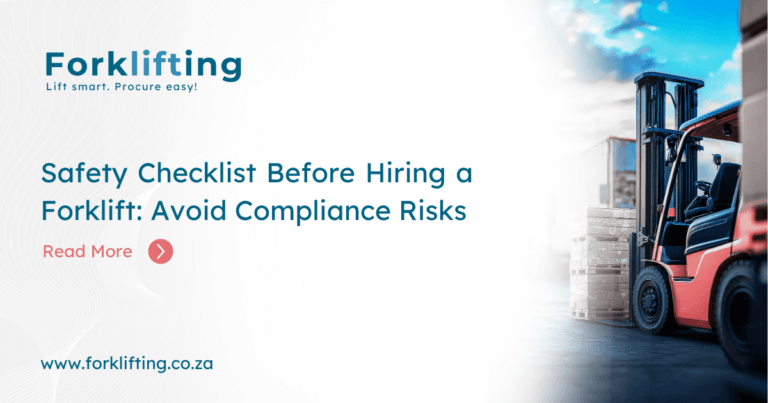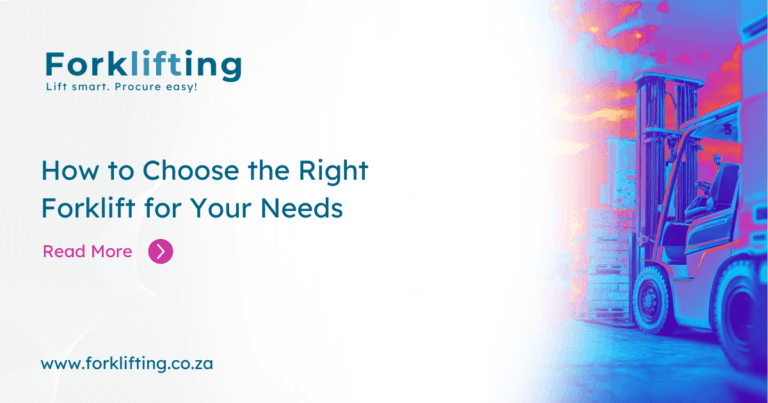A Guide for Procurement Buyers, Operations Managers, and Business Owners
When faced with the decision to buy a forklift or hire a forklift, it’s crucial to evaluate factors that impact your productivity, efficiency, and cost management. As procurement buyers, operations managers, and business owners, you face unique challenges related to your productivity and efficiency, demand fluctuations caused by seasonal spikes during busy periods, and budget constraints. This guide explores the pros and cons of buying vs renting a forklift to help you make an informed decision.
Understanding Your Pain Points
1. Productivity and Efficiency Challenges
Forklifts are essential for moving goods efficiently within your facility. However, if you make the wrong decision to buy or rent a forklift, you could face productivity setbacks. A poorly maintained or unsuitable forklift can lead to delays, increased labour costs and reduced throughput.
- Buying: Ownership means you have complete control over maintenance schedules and can customise the forklift to meet specific operational needs. This can lead to improved productivity as you can ensure that the equipment is always available and in top condition.
- Renting: Rental options provide access to the latest models and technology without the commitment of ownership. However, availability may be limited during peak times or when demand surges, potentially hindering productivity.
2. Seasonal Demand Fluctuations
Many businesses experience fluctuations in demand, especially during peak seasons. This variability can make it challenging to determine the right forklift solution. Investing in a forklift that sits idle during off-peak times can strain your budget, while renting may not provide the flexibility you need during busy periods.
- Buying: Purchasing a forklift is a long-term investment. If your demand is stable, this could be cost-effective. However, if demand is seasonal or erratic, you may find yourself with excess equipment during slow periods.
- Renting: Renting offers flexibility to scale up or down based on demand. You can easily rent additional forklifts during peak seasons and return them when demand drops, helping to manage costs effectively.
3. Cost Management and Budget Limitations
Budget constraints are a reality for most businesses. The initial cost of purchasing a forklift can be significant, and ongoing maintenance and operational costs must also be considered. Conversely, renting may seem like a more manageable option, but rental fees can accumulate over time, potentially exceeding the cost of ownership.
- Buying: The upfront costs of purchasing a forklift can be substantial. Additionally, ongoing expenses such as maintenance, insurance, and depreciation should be considered. However, over time, owning a forklift can be more economical if used regularly.
- Renting: Renting typically involves lower initial costs and can be more manageable within tight budgets. You may also avoid unexpected maintenance costs. However, forklift rental fees can accumulate over time, especially if you need the equipment for an extended period.

Pros and Cons of Buying a Forklift
Pros:
- Long-term Investment: Owning a forklift can be more cost-effective in the long run, especially if you will be using it frequently.
- Asset Investment: Forklifts can be seen as a capital investment, offering potential tax benefits.
- Predictable Costs: Once purchased, ownership costs become more predictable.
- Customization: You can choose a forklift that meets your specific operational needs and modify it as necessary.
- Availability: An owned forklift is always available for use, eliminating downtime associated with rental agreements.
- Full control over maintenance and customisation.
- No rental fees, leading to potential savings over time.
Cons:
- High Initial Cost: The upfront investment can be substantial, which may impact your cash flow and strain your budget.
- Maintenance Responsibility: As the owner, you are responsible for all maintenance and repair costs, which can add up over time.
- Depreciation: Forklifts depreciate in value, which can impact your financial statements.
- Underutilisation: Forklifts may be underutilised during slow periods.

Pros and Cons of Renting a Forklift
Pros:
- Lower Initial Costs: Renting requires less upfront capital, freeing up your capital for other investments or emergencies, making it easier to manage your cash flow.
- Flexible Budgeting: Rental costs are easier to budget for for short-term seasonal spikes or projects.
- Flexibility for operational needs: Renting allows you to adjust your fleet size based on seasonal demand, ensuring you have the right equipment when you need it.
- Maintenance Included: Most rental agreements include maintenance, reducing your operational burden.
- Access to latest technology without the burden of ownership.
- No Capital Outlay: Frees up capital for other investments or emergencies.
- Flexible Budgeting: Rental costs are easier to budget for short-term projects.
Cons:
- Higher Long-term Costs: If you rent for an extended period, the cumulative rental costs can be high over time and may exceed the cost of buying a forklift.
- Limited Customisation: Rental forklifts may not meet all your specific operational needs.
- Availability Issues: During peak seasons, rental availability may be limited, potentially leading to operational delays.
- No Ownership Equity: Payments do not contribute to asset ownership.
- Variable Costs: Rental rates might fluctuate, affecting budget consistency.
Making The Right Choice

When deciding whether to buy or rent a forklift, consider the following factors:
- Frequency of Use: If you require a forklift daily, purchasing may be more economical.
- Budget and Cash Flow: Assess your budget and cash flow to determine which option aligns better with your financial situation.
- Operational Requirements: Evaluate your specific operational requirements, including the type of loads you handle and the environment in which you operate.
- Seasonal Demand: Consider how demand fluctuations may impact your need for a forklift throughout the year.
Ultimately, the decision to buy or rent a forklift should be based on a thorough analysis of your operational needs, financial situation, and long-term goals. By carefully weighing the pros and cons, you can make an informed choice that enhances productivity and efficiency while managing costs effectively.
Get Multiple Forklift Quotes with Forklifting
Forklifting makes forklift procurement effortless. Whether you’re looking to buy a forklift or hire a forklift, we connect you with reliable and verified suppliers. With one request, receive multiple forklift quotes from trusted brands, allowing you to compare options and make an informed decision quickly and efficiently.
Request a Quote for Forklift Rental or Request a Quote for Forklift Sales to receive 3 or more competitive quotes today!
